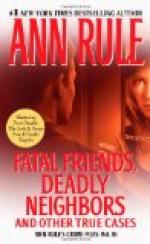“But why should she take a little word go much to heart? It must have had more truth in it than I supposed.”
“Did you know that Mary refused an offer of marriage from Walter Green last week?”
“Why no! It can’t be possible! Refused Walter Green?”
“They’ve been intimate for a long time.”
“I know.”
“She certainly encouraged him.”
“I think it more than probable.”
“Is it possible, then, that she did really jilt the young man?” exclaimed Aunt Rachel.
“This has been said of her,” I replied. “But so far as I can learn, she was really attached to him, and sufferred great pain in rejecting his offer. Wisely she regarded marriage as the most important event of her life, and refused to make so solemn a contract with one in whose principles she had not the fullest confidence.”
“But she ought not to have encouraged Walter, if she did not intend marrying him,” said Aunt Rachel, with some warmth.
“She encouraged him so long as she thought well of him. A closer view revealed points of character hidden by distance. When she saw these her feelings were already deeply involved. But, like a true woman, she turned from the proffered hand, even though while in doing so her heart palpitated with pain. There is nothing false about Mary Lane. She could no more trifle with a lover than she could commit a crime. Think, then, how almost impossible it would be for her to hear herself called, under existing circumstances, even in sport, a jilt, without being hurt. Words sometimes have power to hurt more than blows. Do you not see this, now, Aunt Rachel?”
“Oh, yes, yes. I see it; and I saw it before,” said the old lady. “And in future I will be more careful of my words. It is pretty late in life to learn this lesson—but we are never too late to learn. Poor Mary! It grieves me to think that I should have hurt her so much.”
Yes, words often have in them a smarting force, and we cannot be too guarded how we use them. “Think twice before you speak once,” is a trite but wise saying. We teach it to our children very carefully, but are too apt to forget that it has not lost its application to ourselves.
THE THANKLESS OFFICE.
“AN object of real charity,” said Andrew Lyon to his wife, as a poor woman withdrew from the room in which they were seated.
“If ever there was a worthy object she is one, returned Mrs. Lyon. “A widow, with health so feeble that even ordinary exertion is too much for her; yet obliged to support, with the labour of her own hands, not only herself, but three young children. I do not wonder that she is behind with her rent.”
“Nor I,” said Mr. Lyon, in a voice of sympathy. “How much, did she say, was due to her landlord?”
“Ten dollars.”
“She will not be able to pay it.”
“I fear not. How can she? I give her all my extra sewing, and have obtained work for her from several ladies; but with her best efforts she can barely obtain food and decent clothing for herself and babes.”




